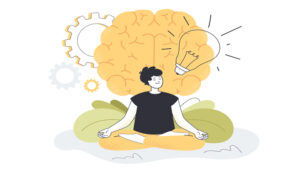Types of loans are essential tools that help people achieve their financial goals, whether it’s buying a home, starting a business, or covering unexpected expenses. Understanding the different options available can make a huge difference in your ability to manage your finances and plan for the future.
From personal loans to mortgages, each loan has its unique features, benefits, and risks. Knowing which one to choose can save you time, money, and stress in the long run.
Curious to learn more about the various options and how they can work for you? Keep reading to discover all the choices available to help you make the best financial decisions.
What Is a Loan?
A loan is an amount of money that a lender, such as a bank, credit union, or online lender, gives to a borrower under specific terms.
Typically, the borrower agrees to repay the loan in installments, often with interest, over a defined period. The amount, interest rate, and repayment terms vary depending on the type of loan.
In South Africa, loans are essential for accessing capital when savings fall short. Knowing the types of loans available can empower consumers to make informed decisions and avoid financial pitfalls.
1. Personal Loans
Personal loans are one of the most popular types of loans. These loans can be used for various purposes, such as paying for medical bills, weddings, education, or consolidating debt. Personal loans are usually unsecured, meaning they don’t require collateral, making them accessible for many people.
In South Africa, personal loans typically range from small amounts to larger sums, depending on the borrower’s creditworthiness. The interest rates on personal loans can vary widely, with higher rates often charged to individuals with lower credit scores.
Key Features of Personal Loans:
- Flexible use of funds
- No collateral required
- Fixed or variable interest rates
- Repayment terms typically range from 12 months to 5 years
2. Home Loans
Home loans, or mortgages, are designed for individuals who want to purchase a home but don’t have enough savings to pay upfront. These loans are typically secured by the property being purchased, meaning that the lender can seize the property if the borrower fails to repay the loan.
In South Africa, home loans are a popular option for first-time homebuyers. However, the approval process can be stringent, with lenders requiring proof of stable income, a good credit score, and a sizable deposit.
Key Features of Home Loans:
- Secured by the property
- Long repayment terms (up to 30 years)
- Lower interest rates compared to unsecured loans
- High loan amounts
3. Car Loans
Car loans are specifically designed to help individuals finance the purchase of a vehicle. Similar to home loans, car loans are usually secured by the car itself, meaning the lender can repossess the vehicle if the borrower defaults on payments.
Car loans in South Africa are available through banks, dealerships, and online lenders. Lenders typically require a down payment and assess the borrower’s ability to repay the loan through their credit history and income level.
Key Features of Car Loans:
- Secured by the car
- Repayment terms of 1 to 7 years
- Interest rates depend on creditworthiness
- Down payment required
4. Student Loans
For many South African students, the cost of higher education can be overwhelming. Student loans provide an opportunity to borrow money for tuition, textbooks, and living expenses while studying. These loans are often offered by the government or private financial institutions.
Repayment of student loans in South Africa typically begins after the student completes their studies and finds employment. Interest rates on student loans tend to be lower than other types of loans, and the repayment terms can be extended to accommodate graduates.
Key Features of Student Loans:
- Designed to cover education costs
- Low interest rates
- Repayment starts after graduation
- Available through banks or government programs
5. Business Loans
Entrepreneurs and businesses in South Africa often turn to business loans to fund their operations, expand their business, or manage cash flow. Business loans can be secured or unsecured, with larger loans typically requiring collateral.
In South Africa, the government and financial institutions offer a variety of business loans, including loans for startups, growth, and working capital. These loans may come with lower interest rates for small businesses, as the government often provides financial support to stimulate economic growth.
Key Features of Business Loans:
- Can be secured or unsecured
- Used to fund business activities
- Repayment terms vary depending on the loan type
- May require a business plan and collateral
6. Payday Loans
Payday loans are short-term loans designed to cover immediate expenses until the borrower’s next payday. These loans are typically unsecured and have very high interest rates. Payday loans are usually borrowed in small amounts, often less than a few thousand rands, and are repaid quickly.
In South Africa, payday loans are available from a variety of lenders, but they should be used with caution due to their high-interest rates and short repayment terms. Borrowers should ensure they can repay the loan on time to avoid accumulating excessive debt.
Key Features of Payday Loans:
- Short-term loan
- High-interest rates
- Small loan amounts
- Quick approval process
7. Debt Consolidation Loans
Debt consolidation loans are used by individuals who want to combine multiple debts into a single loan. This is often an attractive option for people struggling to keep up with multiple loans or credit card payments.
In South Africa, debt consolidation loans can help borrowers simplify their finances by consolidating outstanding debts into one manageable monthly payment. This can also help reduce the overall interest paid, depending on the interest rate of the new loan.
Key Features of Debt Consolidation Loans:
- Combines multiple debts into one loan
- Simplifies repayment
- Can reduce overall interest payments
- Secured or unsecured options available
8. Secured vs. Unsecured Loans
An important distinction between the various types of loans is whether they are secured or unsecured. Secured loans require collateral, such as a home, car, or business asset, to guarantee repayment. If the borrower defaults, the lender can seize the collateral.
Unsecured loans, on the other hand, do not require collateral. These loans are often based on the borrower’s creditworthiness and income. While unsecured loans are easier to qualify for, they typically come with higher interest rates to offset the risk to the lender.
Secured Loans:
- Lower interest rates
- Require collateral
- Higher loan amounts
Unsecured Loans:
- No collateral required
- Higher interest rates
- Smaller loan amounts
9. Emergency Loans
Emergency loans are short-term loans used to cover unexpected expenses, such as medical bills, home repairs, or car repairs. These loans are often available quickly and are unsecured.
In South Africa, many financial institutions offer emergency loans to help individuals meet urgent financial needs. They come with higher interest rates but provide fast access to funds.
Key Features of Emergency Loans:
- Used for unexpected expenses
- Short-term repayment
- Higher interest rates
- Fast approval process
Conclusion
Understanding the types of loans available is crucial for making informed financial decisions. Whether you need a personal loan, a home loan, or a loan to start a business, each type comes with its own set of benefits and risks. By evaluating your needs, financial situation, and repayment ability, you can choose the right loan to help you achieve your financial goals in South Africa.
Before taking out any loan, it is important to carefully consider the terms, interest rates, and potential repayment challenges. Whether you are borrowing for education, a home purchase, or an emergency, understanding the different types of loans can help you navigate the lending landscape effectively.





